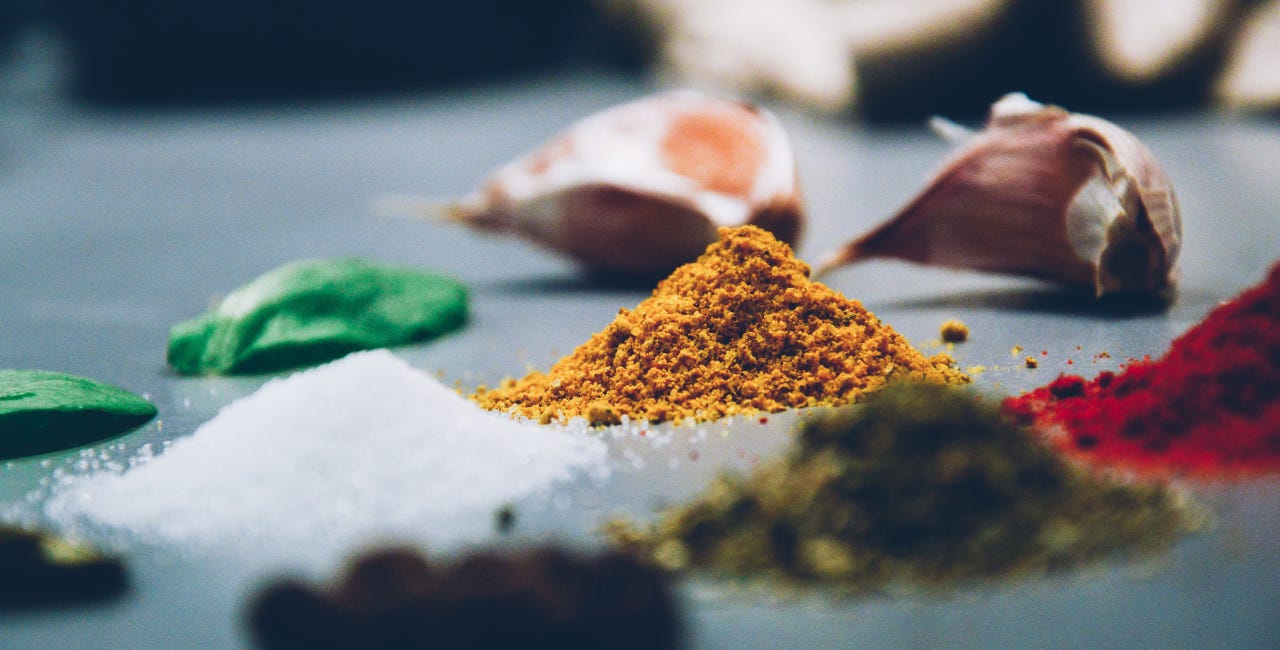5 Wellness Trends You Can’t Ignore: How to Thrive, Not Just Survive
Embrace the Future of Self-Care with These Game-Changing Practices
Hey wellness warriors, it’s that time of year again. The days are getting shorter, the lattes are getting pumpkin-ier, and we’re all pretending summer wasn’t that exhausting. Whether you're deep into your fitness routine or still trying to figure out how to use that meditation app you downloaded last year (no judgment), the world of wellness is evolving faster than you can say "kombucha." Lucky for you, we’ve got the inside scoop on what’s next, and it’s all about taking control of your health with science-backed, data-driven solutions that actually work.
According to McKinsey’s Future of Wellness report, wellness is no longer a luxury — it’s a lifestyle, with 82% of U.S. consumers saying it’s a top priority. So, what are the major trends shaping the wellness world? Let’s take a deep dive into the five game-changing trends that are transforming how we take care of ourselves. Spoiler alert: it’s a lot more than just smoothies and yoga.
1. Health at Home: More Than Just WebMD (But a Spa Day Won’t Hurt Either)
If the past few years taught us anything, it’s that staying home can actually be great for your health — as long as you're not binge-watching Netflix for 12 hours straight (and yes, I’ve definitely done that more than once... no judgment here!). McKinsey’s report highlights a growing trend: at-home health kits are booming. From vitamin deficiency tests to cholesterol checks, consumers are getting savvier about monitoring their health from the comfort of their own couch. Think about it: no waiting rooms, no awkward gown-tie situations, and no battling traffic to see your doctor. Just you, your test kit, and maybe a little YouTube guidance (we’ve all been there).
But here’s the thing: even if you’re embracing the health-at-home movement, that doesn’t mean you can’t indulge in a little luxury too. Modern spas are now offering treatments that go beyond relaxation — think hydrotherapy, bio-hacking, and sound baths — that actually support your wellness goals. So, yes, you can and should indulge in a spa day or week (don’t worry, I won’t judge!). Think of it as the perfect complement to your at-home wellness routine, where science-backed treatments meet a touch of well-deserved luxury.
Quick Tip: Want to check your vitamin levels without the doctor’s visit? At-home test kits can give you quick insights. Just make sure they’re science-backed—because who has time for health fads that don’t deliver? And hey, while you're at it, book that spa appointment.
2. Wearables: It’s Not Just About Steps Anymore
We’ve all heard it before: wearables like Fitbits and Apple Watches are great for tracking steps, but the next generation of wearables is so much more than glorified pedometers. According to McKinsey’s research, nearly half of all consumers have purchased a fitness wearable at some point, and they’re using them more often than ever.
Today, you can wear a biometric ring that tracks your sleep quality or slap on a continuous glucose monitor to better understand your blood sugar levels. More importantly, these devices are getting smarter. Gone are the days of simply counting steps — now, your wearable can tell you why you’re feeling sluggish and help you do something about it.
Pro Tip: Wearables are now tracking stress and cortisol levels, too. So the next time you’re stuck in traffic or juggling five deadlines, you’ll know exactly how much it’s sending your stress through the roof (just kidding… kind of).
3. Personalized Wellness: The Gen AI Revolution
Move over, basic fitness plans and generic skincare routines — personalized wellness is here to stay, and it’s getting a major boost from generative AI. According to McKinsey, around 20% of U.S. consumers are interested in personalized products and services that use biometric data. Whether it’s a custom workout plan based on your wearables data or a skincare regimen tailored to your unique complexion, this trend is all about you.
Gen AI is taking personalization to the next level, helping consumers make smarter decisions by analyzing their health data and spitting out recommendations that actually work. Whether you’re trying to lose weight, manage stress, or just find a moisturizer that won’t give you breakouts, AI is going to be your new best friend.
4. Clean vs. Clinical: The Beauty of Choosing Both
In the skincare world, there’s often been a tug-of-war: should you go “clean” with natural ingredients or trust the science behind “clinical” products? But what if I told you that you don’t have to choose? In today’s wellness landscape, the most exciting development is the merging of these two worlds—clean, plant-based beauty meets clinically proven results.
Here’s the truth: healthy skin is beautiful skin. It’s about more than just glowing on the outside; it’s about what you’re putting into your skin and how it benefits your overall health. That’s why the most forward-thinking skincare brands are now focusing on plant-powered ingredients while using the latest technology to maximize results. No harsh chemicals, no questionable fillers, no synthetic fragrances. Instead, they’re turning to nature’s best—extracts, botanicals, and natural actives—and pairing them with conscious technology to create visible results without the trade-offs. (I mean, I may be biased, but who wouldn’t want the best of both worlds?)
This combination allows you to tackle common skin concerns like wrinkles, acne, hyperpigmentation, and rosacea without the risks associated with harsher ingredients like retinols or benzoyl peroxide. It's a safer, more sustainable approach to skincare, but it’s also incredibly effective. Who says you can’t have glowing, youthful skin without sacrificing your health?
So, whether you’re someone who’s been all about clean beauty or have always leaned toward clinical-grade results, the future of skincare means you can finally have both. You don’t have to choose between nature and science—you can embrace them both in your beauty routine, knowing that healthy, radiant skin is within reach.
5. Mindfulness: It’s Not Just for the Meditation Mats Anymore
Mindfulness is making a comeback, but this time it’s less about sitting cross-legged on a mountaintop and more about practical tools for everyday life. Whether it’s through mindfulness apps or therapy sessions, consumers are seeking new ways to combat stress and improve mental health.
And here’s the kicker: people want mindfulness solutions that work. According to McKinsey, 51% of consumers say that effectiveness is the most important factor when choosing wellness products. So while meditation apps are still great, expect to see more science-backed solutions to help you stay zen in the chaos of daily life.
Final Thoughts: Wellness Isn’t a Fad, It’s a Lifestyle
Wellness is no longer just about the latest juice cleanse or Instagram-worthy yoga pose. It’s about science, data, and products that work. As consumers get more sophisticated, the demand for effective, personalized, and clinically proven wellness solutions is only going to grow.
So, what does this mean for you? Whether you're investing in a new fitness app, signing up for yoga classes, treating yourself to a spa day, or splurging on wellness products, the key is to invest in you—your well-being, your health, and your happiness. It doesn’t matter how you choose to do it, as long as you make yourself a priority. And remember, the journey to better health doesn’t have to be all serious—make it fun, because you deserve it.
Stay well, stay curious, and stay fabulous, friends!
Gastronomic Globe-trotting: A Journey Through the World’s Culinary Traditions
As the sun peers gently through my kitchen window, its soft morning rays playing upon a constellation of spices on my counter, I find myself at the threshold of another culinary adventure. Each day, my kitchen transforms into a portal, a gateway that transcends geographic boundaries, guiding me into the heart of global cuisine.










